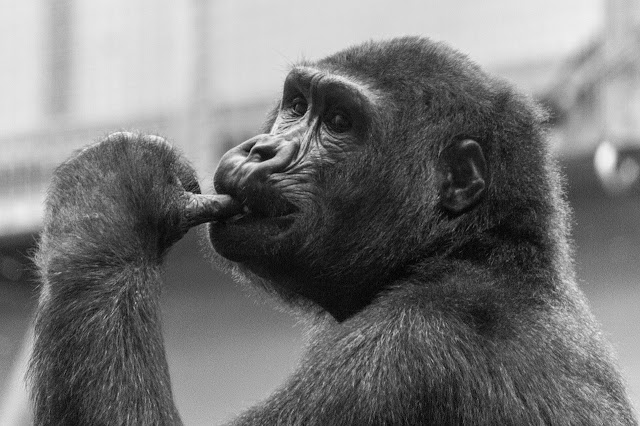Eleven rhesus macaques, a species of monkeys, have been equipped with human versions of the MCPH1 gene. It is said to play a role in the development of the human brain.
“We find ourselves simply on the ‘Planet of the Monkeys’, in the popular imagination,” summarizes Jacqueline Glover, a bioethicist at the University of Colorado.
This scientist does not hide her concern after the publication last month of a study on monkeys, to which Chinese scientists have implanted a gene of the human brain. Their objective was to study the evolution of human intelligence.
In partnership with scientists at the University of North Carolina, researchers at the Kunming Institute of Zoology and the Chinese Academy of Sciences have implanted the human MCPH1 Geneon 11 macaque rhesus versions, which estimates suggest play a role in the development of the human brain. The study was published in the English version of the Beijing National Science Review.
The researchers found that, like humans, the brains of these monkeys took longer to develop. Also, the animals performed better on short-term memory and reaction time tests, compared to monkeys living in nature. However, the size of the brains of the monkeys of the experiment was not greater than that of the brains of their congeners in the control group.
Slippery Slope
“Our results demonstrate that, apart from great ape species, non-human transgenic primates have the potential to provide important -and potentially unique- insights into fundamental questions about what makes humans unique," claim the authors of the study.
The monkeys were subjected to memory tests in which they had to remember colors and shapes on a screen and MRIs (magnetic resonance imagining). It is noteworthy, only five of them survived until the testing phase.
As far as the authors of the study are concerned, although genetically closer to humans than rodents, the rhesus macaques remain sufficiently distant from humans; so as not to raise ethical questions.
“Using transgenic monkeys to study human genes and brain evolution is very risky,” claims James Sikela, a geneticist at the University of Colorado, quoted by the MIT Technology Review. For him, this study could lead to even greater changes.
“This is a classic example of a slippery slope, and we must expect it to happen again as long as there is this type of research. Larry Baum, a researcher at the Center for Genomic Sciences at the University of Hong Kong, nevertheless put these fears into perspective, pointing out that ‘this study only modified one of some 20,000 genes,” he added.
Several Controversial Experiments
This is not the first experiment in the field of biomedical research to have caused controversy in China. In January, a team of Chinese scientists announced that they had cloned five monkeys from a single specimen whose genes had been modified to make them sick, in order to study sleep disorders.
They discovered that these monkeys showed signs of associated mental problems, including depression, anxiety, and schizophrenia-related behavior. Published in the National Science Review, these results were intended, in their opinion, to be used for research on human psychological diseases.
In November 2018, He Jiankui, a Chinese researcher, announced the birth of two human babies whose genes had been modified, so as to protect them from the AIDS virus.
Much criticized by Beijing and the international scientific community, this researcher found himself, unfortunately, at the center of a police investigation; and he was removed from his post at the University of Southern China where he was serving.


